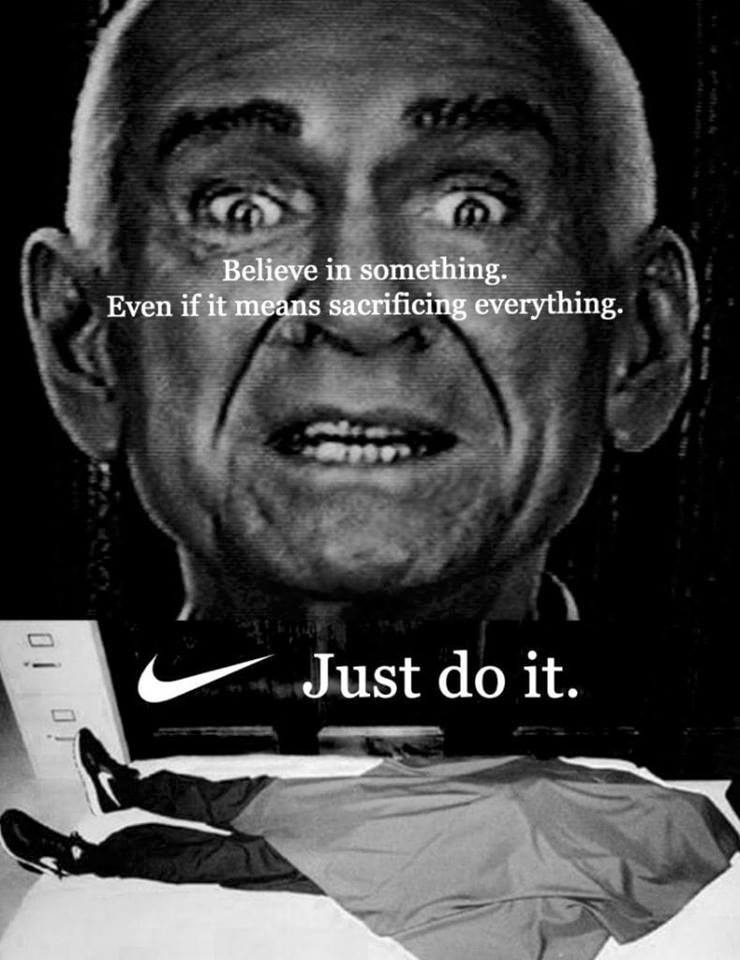Comcast, my ISP simply because there are no other ISPs in my area, has informed me that they are planning to “upgrade” equipment in my area so my Internet may go down more frequently than it usually does. If you can’t reach this site tomorrow, blame Comcast.
Category: Side Notes
Special Delivery
I’m assuming these bombs that everybody is taking about are newsworthy because they were mailed instead of launch from a drone.
Is Facebook Private or Public
Is Facebook private or public? This is currently being hotly debated, even in libertarian circles where Facebook was by and large considered private up until it silenced a large number of libertarian-leaning groups and pages. I believe that in order to debate this topic, the definitions of public and private must first be established.
What distinguishes a private entity from a public one? I would argue that the characteristic that most distinguishes a private entity from a public one is whether or not you’re allowed to stop participating in it. If, for example, you stop participating in the Internal Revenue Service (IRS), you will likely be awakened some early morning by the sound of men with guns breaking down your door. If you’re lucky, they’ll kidnap you. If you’re unlucky, they’ll summarily execute you.
What happens if you stop participating in Facebook? You stop participating in Facebook. That’s it. No men with guns will kick down your door and kidnap or execute you.
Since participation in Facebook is voluntary, I will continue to argue that it is a private entity. Even if it does collect user information for the expressed purpose of selling it to government agencies (as many self-proclaimed libertarians have been arguing as of late), it’s still private because you’re not being cohered into participating in the information collection (until the IRS’s information collection).
Spreading Democracy
When referring to communicable diseases, it’s common to say that they’re spreading.
Considering that, I think the phrase “spreading democracy” is particularly apt.
Getting Married
My wedding is this weekend so my time is focused on that. Regular updates will resume beginning next week.
9/11
Today is 9/11.
Although all of us who experience 9/11 swore we would never forget, many of us have.
So let us all take a solemn moment to remember what happened on September 11, 2001. Let us all remember the release of Slayer’s God Hates Us All album.
A More Entertaining Show
A bunch of conservatives threw a tantrum because Nike chose an individual who failed to stand during prayers to skycloth as its mascot. While a bunch of triggered snowflakes cutting up their socks and burning their shoes is mildly entertaining, this has the potential to be extremely entertaining:
Ford, (F)a sponsor of the National Football League, has voiced support for NFL players exercising their right to free speech and peaceful protest after President Donald Trump urged fans to consider a boycott.
“We respect individuals’ rights to express their views, even if they are not ones we share,” the company said on Monday. “That’s part of what makes America great.”
Queue a bunch of triggered conservatives burning their Ford F-150s.
Yeah, I know it won’t happen. Virtue signalling only goes so far. Some people may be willing to cut up a $10 pair of socks or even burn an old pair of shoes to demonstrate their virtuousness, but few are willing to destroy a vehicle worth tens of thousands of dollars to show the world how much they love the skycloth.
Impotent Rage
Nike announced its new mascot, Colin Kaepernick. Since Kaepernick made a name for himself by failing to stand during prayers to skycloth, a lot of conservatives are upset with Nike and have chosen to make Nike feel their impotent rage:
Following the announcement, the hashtags #BoycottNike and #JustBurnIt started trending on Twitter and shares started falling. Some angry consumers even posted photos and videos of themselves burning their Nike shoes and other gear to protest the company using the divisive figure in its 30th anniversary ad campaign.
I ask you this, is there a more useless way to protest a company than destroying your own property? I can’t think of one. If you purchase a pair of Nike shoes and later burned them, it doesn’t hurt Nike one bit, the company already has your money.
With that said, I am glad that Nike chose Kaepernick as its mascot, not because I feel that a backup quarterback best represents the company but because the memes that have sprung forth have been solid gold! This one is my favorite so far:
The Best Memory
The powers of the current United States president never cease to amaze me. For example, he apparently remembers the bombing of Pearl Harbor:
“I remember Pearl Harbor,” Trump reportedly told Abe as part of a tirade against the U.S. trade deficit with Japan. The president reportedly wanted better deals to help U.S. car and beef producers.
Considering Pearl Harbor was bombed in 1941 and Trump was born in 1946, he apparently has a really good memory, just the best.
If You Ever Feel Stupid
If you’re ever feeling particularly stupid, just remind yourself that somebody actually published this:
With the possible exception of the U.S. military (including veterans and families), no group was more indebted to Sen. John McCain (R-Ariz.) than the human rights community.
